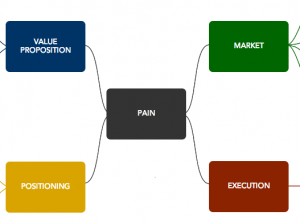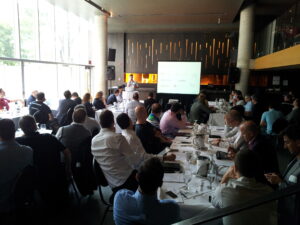
![]()
![]()
![]() Some rights reserved by nocklebeast
Some rights reserved by nocklebeast
The other day Fred Wilson posted an opinion and some tips on Investor/Mentor Whiplash. He took the position that that is a big problem for accelerators as well as early stage and seed environments. Brad Feld took this as a bit of a misunderstanding on accelerators, he insists that TechStars creates an environment where early stage companies can learn to manage the whiplash. Brad Feld states:
I disagree with Fred. It’s not a big problem. It’s the essence of one of things an accelerator program is trying to teach the entrepreneurs going through it. Specifically, building muscle around processing data and feedback, and making your own decisions.
On the surface this seems correct. A problem (one of many) new founders face is the overwhelming barrage of mentorship (good and bad) and information mixed with the inability to filter. An accelerator should be able to provide the environment where a strong group of peers with some guidance can help to build the “muscle around processing data and feedback.” In the last 6 years I have noticed that is a common problem founders face and their ability to manage it is important to their success. It wasn’t until I experienced the whiplash myself a 2nd and 3rd time that I fully appreciated the damage it can do even if you are prepared for it.
Generally what I tell early stage founders:
- Only talk to customers once you have something to show them — but that shouldn’t take you a long time, don’t go heads down for months. Asking people what they want and not focusing on something specific they can touch/feel is a path to busy work and infinite sadness.
- Avoid the mentor parties/socialization. Find two (or three) good people with opposing views and bounce specific data off them but only when you have done something that requires fresh eyes to advise you how to interpret the results.
- Focus on what isn’t working when getting feedback from mentors. Founders need to be positive but you need to focus on the bad things when talking to your close mentors that have been through it already. If they can’t help you with the tough stuff why are you spending a lot of time with them?
- Don’t expect a direct answer. Experienced mentors know you are the best person to run your company, not them, and they have developed a way of not telling you what or how to do things but instead challenge you to figure it out in a positive way.
Whiplash from mentors doesn’t just happen in startups, it happens everywhere people are giving you advice or have something to gain by influencing the decisions you are about to make or the opinion you develop on something.
Being prepared and learning to manage the whiplash isn’t just the essence of accelerator programs, it is the essence of education that culminates in the top level you can achieve to filter information – a phd program. At the phd level the filter muscle is almost too strong but that is a topic of a whole other blog post.
The scary thing for entrepreneurs is that accelerator programs are too often run by people that don’t know how to effectively educate people and/or they have something to gain financially by the decisions founders make.
I think this *is* a big problem in accelerators. I wonder if the ability to teach that skill to founders (or select founders that already have that skill) is the difference between a successful accelerator (which is really only TechStars and YC) and one that isn’t (pretty much everyone else)?
[Editor’s note: This post was originally posted on Jesse Rodgers’ Who You Calling a Jesse blog on July 31, 2013.]







